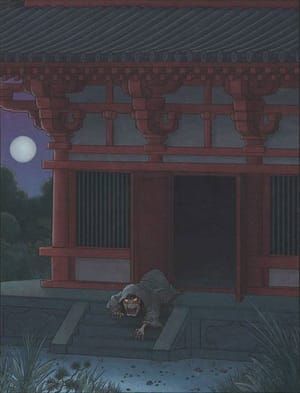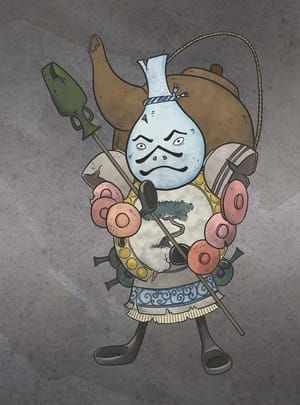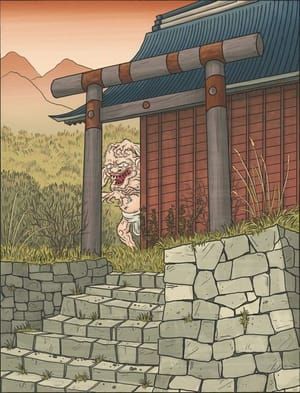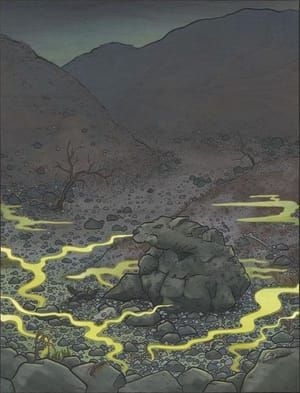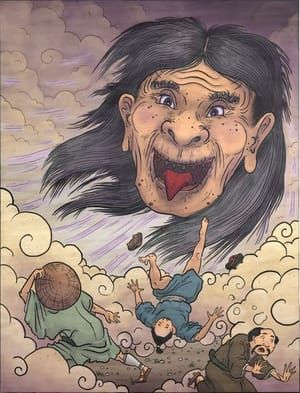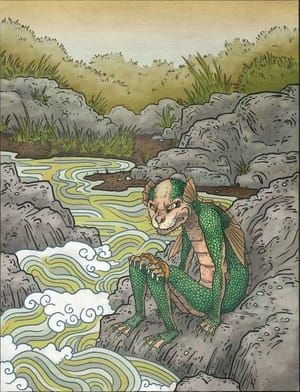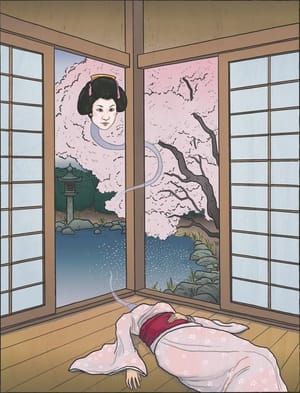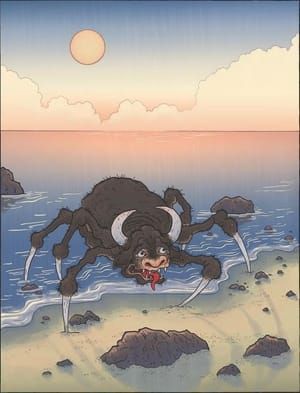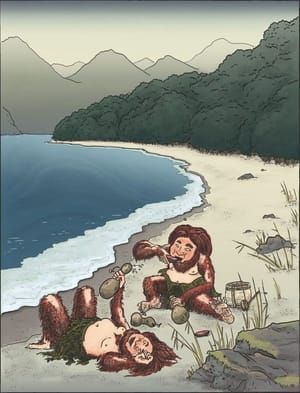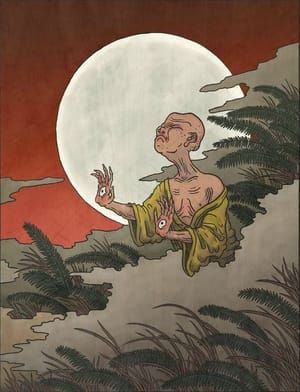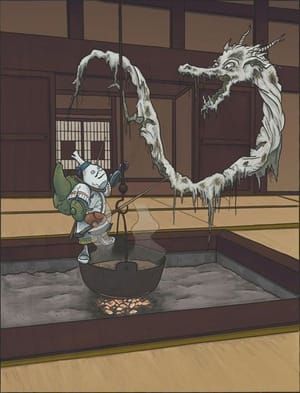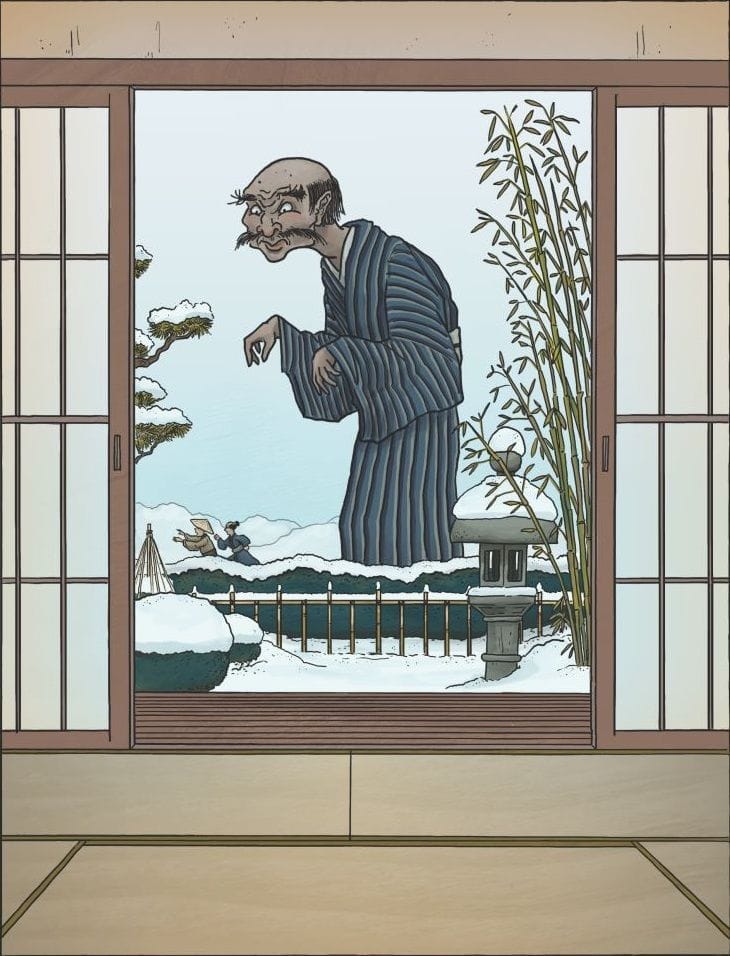

Ōnyūdō, 2013
Matthew Meyer
大入道
Ōnyūdō is a catch-all term for a number of kinds of giants found throughout Japan. While some ōnyūdō bear a strong resemblance to Buddhist priests and monks, the name is used in a euphemistic way; most ōnyūdō have no actual relation to the clergy. Size, appearance, and mannerisms vary from region to region and account to account; some giants are only slightly larger than a human, while others are as big as a mountain; some are saviors of men while others are man-eaters.
Ōnyūdō can be separated into four general groups: those that harm humans; those that help humans; transformations of other yokai; and other truly unique ōnyūdō that do not fit into any of these categories.
Ōnyūdō that harm humans are by far the broadest category. Among them are many well-known yokai, such as Hitotsume nyūdōu, Mikoshi nyūdō, and Umi bōzu. These giants delight in terrorizing humans – sometimes hunting them to eat, sometimes pillaging and destroying villages out of rage, and other times terrifying lone travelers just for the fun of it.
Ōnyūdō that help humans are much rarer. They sometimes perform good deeds such as turning stuck waterwheels, moving heavy objects, or doing other things that require incredible amounts of strength. Though helpful, they are not always friendly, and can change from benevolent to violent or angry with little warning.
True ōnyūdō are actually fairly rare; transformed yokai – especially tanuki and itachi – make up a large percentage of the giant population. Shape-shifting yokai often take on giant form in order to scare people and cause mischief, though they rarely kill. As there is no easy way to identify if a giant is a true ōnyūdō or just a shape-shifter, the two are functionally indistinguishable.
The remainder of ōnyūdō are enigmatic and mysterious. Often they are only evidenced by their footprints or discarded trash – and it is generally wise to leave them be at that. Regardless of how good or evil at heart a particular ōnyūdō is, they are by nature extremely dangerous. It is better to avoid all contact with them than risk enraging them and potentially bringing destruction upon the nearby villages.
Matthew Meyer
artistArthur
coming soon
